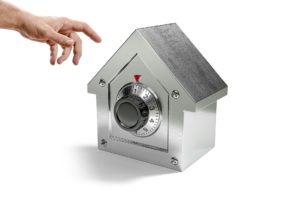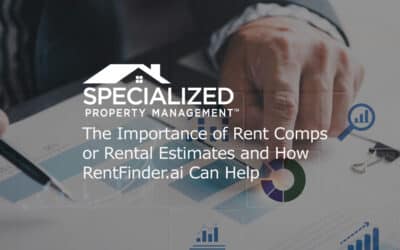If you’re at the end of your lease term it’s time to move out of your Orlando rental property, you probably have some questions about your security deposit. You might want to know when you’ll get it back and how you can ensure you get all or most of it back.
As you may recall, you paid a security deposit before you moved in. This is part of the leasing process, and we collected the deposit when we met to sign your lease and explain all the expectations and responsibilities that come with tenancy. If you moved in with a pet, we may have also collected an additional deposit or fee for each pet. The security deposit is fully refundable at the time of move out, but we hold them in escrow during the lease term to cover any damages to the property.
We’d like to take this opportunity to explain how the security deposit return process works in Orlando, and how you can make sure the property is returned to us in the same condition it was when we turned it over to you. When you’re able to demonstrate that you’ve kept the property in the same condition it was when you moved in, you’re likely to receive your security deposit in full.
There are a few things you need to know.
How We Use a Tenant’s Security Deposit
As a tenant, you will not be responsible for any normal wear and tear that has occurred at the property. We know that regular wear is going to happen no matter who is living in a home, and you won’t face outrageous charges for things like nail holes in walls or scuff marks where you had a sofa. Landlords and property managers expect this type of wear and tear, and ultimately owners are responsible for repairing it.
Damages are different. They are more serious than what is considered normal wear and tear. Our lease agreements are from the Association of Realtors, and they define normal wear and tear the same way we do: as deterioration that occurs without negligence, carelessness, accident, or abuse. During your move-in process, you were given an inventory and condition form to document the property condition. You had the opportunity to note anything that was damaged or not working. Photos were required to support any items noted on the form.
When you’re ready to move out of the property, our office references this form and the photos so we can compare any change in the condition of the property. We complete an independent move-out assessment, at which point we compare the condition of the home before you moved in to the condition of the home after you moved out. This assessment is done without the resident or the owner present to ensure that we gather an unbiased report.
Then, we create a deposit itemization form so we can deduct from the security deposit the cost to repair any damages to the property above normal wear and tear. We are also entitled to withhold security deposit funds for any tenant financial obligations. These may include:
- Unpaid balance on the tenant’s account.
- Unreturned keys or remotes, or other devices belonging to the property.
- Accelerated rent (in the event of a lease breach).
- Costs to remove any personal belongings left behind in the property.
How to Receive Your Full Deposit Back: Tenant Requirements
Every tenant hopes to receive the full security deposit after a move-out. We want to avoid misunderstandings and disputes as often as possible. So, we’ve created a checklist that you can use to ensure you’ve done everything you possibly can. In order to receive your deposit in full, you must meet all of the lease requirements including but not limited to the following:
- Provide a 30-day advanced written notice that you will be moving out. This is required by your lease, and you are not technically out of the lease until you give your notice and that notice period has passed.
- Leave the property move-in ready for the next tenant. This means it must be fully ready to be occupied by the next resident aside from normal wear and tear.
- Have the carpets professionally cleaned. You must document this was done by submitting a receipt from the cleaning company to our office.
- Fully vacate the property. A lot of tenants make mistakes here. You need to clear the home of all personal items including trash or unwanted belongings. Do not leave behind things that you don’t want or cannot move. If any personal belongings are left, they become the property of the landlord and will be removed, donated or sold. You’ll be charged for the cost to remove those items.
- Sufficiently clean the property including appliances, bathrooms, kitchen, windows, etc. We want to see a thorough cleaning that brings the property into a state of cleanliness that matches the home when you moved in.
- Replace burned out light bulbs and dirty air conditioning filters.
- In the event the walls were painted without prior authorization, you must return the walls the original color and paint quality before you move out. Any other changes you made to the property should be taken care of. We want the home to look the way it did when you moved in, and we’ll use our photographs to confirm that everything is the same.
If you’re unsure about something, contact us. Many tenants hire professional cleaners to ensure the home is left in a condition that’s acceptable. We’re happy to give you some additional direction and help you make decisions that will lead to a full security deposit refund.
When You Will Receive Your Security Deposit?
We have to follow Florida state law when it comes to returning your security deposit in a timely manner. So, we ask you to follow our process and help us get the deposit back to you in a timely fashion. On the day you vacate, submit your keys and forwarding address to our office. Leaving your forwarding address is important. We cannot get you the security deposit if you don’t tell us where you’ll be receiving mail.
According to Florida’s security deposit law, we must refund payment to all tenants named on the lease within 30 days of the tenants moving out. We do our best to complete the move out process and assessment prior to the 30 days deadline.
We’ll conduct a full assessment and compare the results to the inspection we conducted at move-in. Any deductions will be made for damage or problems that are definitely not wear and tear items. We know that not all damage is intentional. Sometimes, there are accidents and mistakes that lead to property damage. We sympathize with that, but it will still be your financial responsibility to have those things repaired or replaced. If you accidentally tore a door off its hinges, for example, or a window broke when you were playing fetch with your dog, you’ll be responsible for those repair costs.
We will send you the full security deposit within 30 days if there is no damage. If we do find damage, we will send you the remainder of your security deposit and an itemized list of the things that we deducted for, and an amount that was deducted. We are extremely transparent with all of our security deposit deductions so tenants know exactly where their money was spent.
If there are deductions, your security deposit will almost always cover the cost of repairs. However, if deductions exceed the amount of the security deposit being held, you will have 10 days from the date of the deposit itemization to pay the balance. If not paid, the amount due could be turned over to a collection agency for further collection efforts.
Tenants who paid a pet deposit often believe they will receive their pet deposit back during the term of the lease if a pet dies or runs away or no longer lives at the property. Unfortunately, we cannot do that. Even if the pet you moved in with no longer resides on the property, we need to hold the pet deposit. It cannot be returned mid-lease. We will include that pet deposit with the security deposit itemization at the time of your move-out.
Please do not ask us if you can use the security deposit to pay for your last month of rent. This is considered a breach of the lease, and if you try to do it, we will have to treat it as a lease violation, and it may result in additional charges. You are not legally permitted to use your security deposit for a rental payment.
 Moving out of a rental property can be a stressful process, but we are here to make it easier for you whenever we can. Hopefully, you found this security deposit information helpful. If there’s anything else we can help you with, please don’t hesitate to contact us at Specialized Property Management in Orlando. We hope you have enjoyed your stay with us, and we wish you the best in the future.
Moving out of a rental property can be a stressful process, but we are here to make it easier for you whenever we can. Hopefully, you found this security deposit information helpful. If there’s anything else we can help you with, please don’t hesitate to contact us at Specialized Property Management in Orlando. We hope you have enjoyed your stay with us, and we wish you the best in the future.





